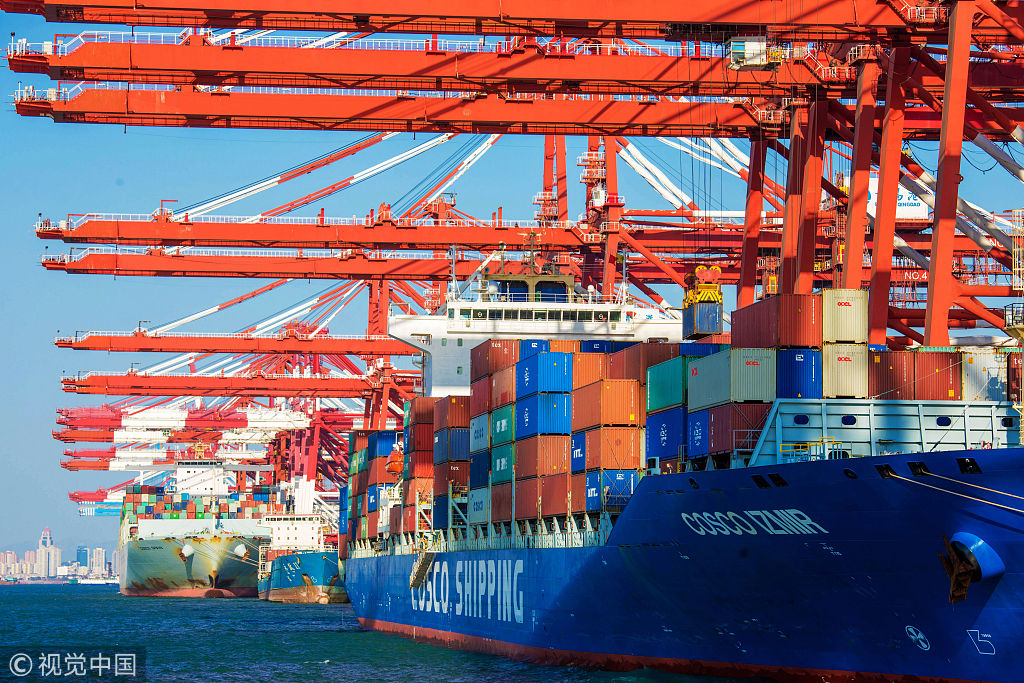Policy constancy key to success of targeted growth


Editor's note: Over the past decade, China's economic, scientific and technological strengths have reached new heights. Implementing the new development philosophy and promoting high-quality development is essential for modernization, writes a veteran journalist with China Daily.
The annual session of the National People's Congress concluded on Monday after approving the Government Work Report, with new State leaders elected by the NPC from Friday to Sunday.
I have been following the session very closely not only because it tells us what the country has achieved in the past year but also because it sets the socioeconomic targets for 2023 — and because the success or failure of achieving these targets will have a direct impact on my life and millions of others like me.
A rough review of the targets set for this year gives me an impression that the central authorities, when setting the new targets, have created enough room for unforeseen circumstances both domestically and internationally.
Unlike many Western politicians who pledge anything that sounds nice to win an election, the Chinese leaders set practical and realistic development goals. This has something to do with the Communist Party of China's ideological line of "seeking truth from facts". It also has something to do with the Chinese philosophy of "more haste, less speed".
In my journalistic career, I have interviewed hundreds of officials at different levels and all of them seemed to agree that the best target is the one that can be reached with a jump. The targets for this year, though, have been set with caution.
The NPC annual session has set the GDP growth target for the year to about 5 percent, which is among the highest in the world. Still, many say the target is low, arguing that the growth rate could be higher, not least because the economic performance in the first two months of this year has been much better than expected and the government's policy to boost the economy is bearing fruit after three years of the COVID-19 pandemic.
While such critics' intentions are good, they ignore the fact that the low economic growth and the high consumer price index in most developed countries may have a negative effect on China's foreign trade which makes up about 30 percent of the country's GDP.
What's more, China has been promoting high-quality development as opposed to quantitative economic growth, in order to facilitate the economy's transformation from labor-intensive to innovation-driven development. But that transformation is anything but easy to achieve.
As another Chinese saying goes, "go steady and go far". Following this principle, the Chinese leadership has achieved almost all the development targets it has set during the previous NPC sessions.
My second impression about the NPC session is the constancy of policy. The session has again pledged that China will continue following the reform and opening-up policy — the development approach it has adopted since the late 1970s. Analyzing the development policies and measures passed during this session, one would not find something dramatically new. That in fact reflects the country's constancy of policy.
China launched reform and opening-up in the late 1970s, and Chinese leaders have adhered to the policy since then which helped them to perform the economic and social miracle for which China is known today. In 1978, China was ranked 15th worldwide in terms of GDP, but by 2010, it had surpassed Japan to become the world's second-largest economy. Although there are many reasons behind the economic miracle, I think policy constancy is the most important of them.
The Party's leadership enables the country to devise long-term development plans and policies such as the reform and opening-up policy, the 45-year-old Three-North Shelterbelt Program (the largest afforestation project in the world) and the national rejuvenation to be realized before the end of 2049.
Such policy constancy should be a lesson for countries that change their economic and social policies frequently or with the change of government. Quite often former leaders are either investigated or imprisoned once the opposition comes to power in many countries.
Policy constancy and strong governance, I believe, will help China achieve its realistic targets and improve the lives and livelihoods of the people.
The author is former deputy editor-in-chief of China Daily.
The views don't necessarily represent those of China Daily.
If you have a specific expertise, or would like to share your thought about our stories, then send us your writings at opinion@chinadaily.com.cn, and comment@chinadaily.com.cn.


































